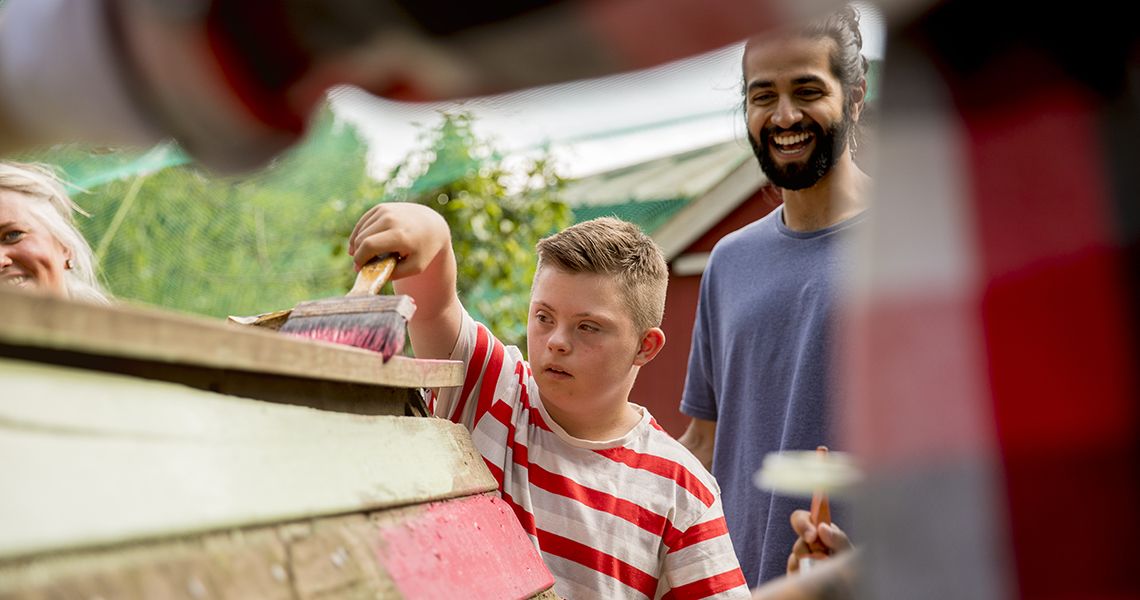
Changing the Status Quo
Program Highlights

Award-Winning Faculty
Learn from a diverse set of global researchers, community leaders, and social change agents.

Excellent Location in Nation's Capital
Receive access to unique experiences throughout the Washington, D.C. area and to our state-of-the-art facility.
A Community-Based Program
The GW OTD program strives to connect its students with the world around them. Students will engage with local, national, and international communities from a variety of disciplines including health, education, arts, government, and many more, across the lifespan in the vibrant city of Washington, D.C. to support societal needs and become holistic, person-centered, and solution-focused professionals.
Our curriculum is rooted in community and fieldwork opportunities throughout our nation's capital reflecting our belief that occupational therapy empowers people and communities. We prepare students with the knowledge and experience they need to advance occupational therapy into the future.
View Community Engagement
Hybrid Education
Students have the option to live anywhere; however, they are required to be on-campus, 6 days per month, for hands-on and experiential activities to develop the clinical competencies for occupational therapy practice. The small class size enables students to engage in critical thinking activities that facilitate effective clinical decision making and problem solving. Faculty members use innovative teaching strategies that integrate clinical experiences to facilitate learning and content retention throughout the curriculum and beyond.
View Hybrid Education
Program Values
We believe people achieve health and well-being when they participate in life activities and are included in the fabric of society. We believe occupational therapy should empower people and diverse communities for meaningful engagement in life activities that promote inclusion and human flourishing in society.
The GW OT program prepares graduates to deliver evidence-informed occupational therapy with a global reach, who advocate for the profession, and become leaders with a commitment to ensuring occupational justice and inclusive engagement in society.
The GW OT program aspires to diversify occupational therapy, using our location in the nation's capital to develop practitioners who innovate and address the unmet occupational needs through collaboration with local, national, and global communities.
Follow and Connect with Us
Program Accreditation & National Certification

The entry-level occupational therapy doctoral degree program at the George Washington University is accredited by the Accreditation Council for Occupational Therapy Education (ACOTE) of the American Occupational Therapy Association (AOTA). Graduates of the program will be eligible to sit for the national certification examination for the occupational therapist administered by the National Board for Certification in Occupational Therapy (NBCOT). After successful completion of this exam, the individual will be an Occupational Therapist, Registered (OTR). In addition, all states require licensure to practice; however, state licenses are usually based on the results of the NBCOT Certification Examination. A felony conviction may affect a graduate’s ability to sit for the NBCOT certification examination or attain state licensure. Students must complete 24 weeks of Level II fieldwork and an individual 14-week capstone experience following the completion of the didactic portion of the program. The doctoral capstone experience must be started after completion of all coursework, Level II fieldwork and preparatory activities defined in 2018 ACOTE OTD Standard D.1.3.
For further information about accreditation contact:
Accreditation Council for Occupational Therapy Education
7501 Wisconsin Avenue
Suite 510E
Bethesda, MD 20814
301-652-6611
www.acoteonline.org
